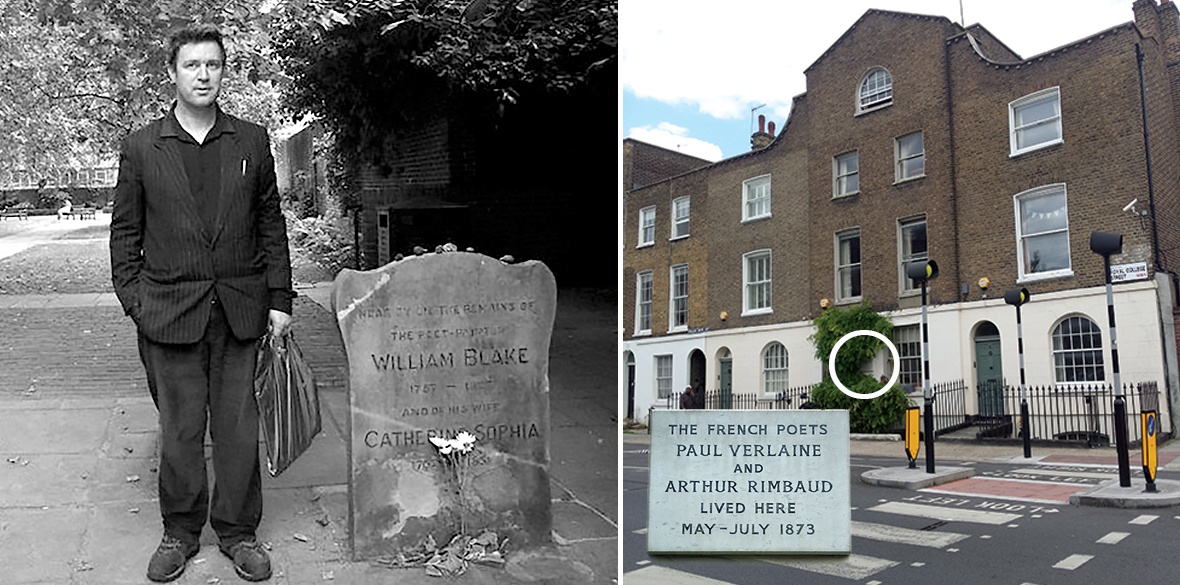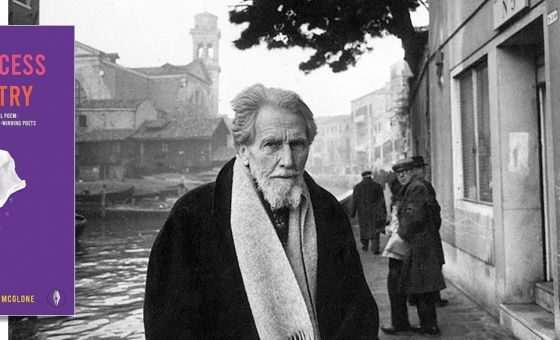This is the last article you can read this month
You can read more article this month
You can read more articles this month
Sorry your limit is up for this month
Reset on:
Please help support the Morning Star by subscribing here
ALMOST incomprehensibly, radical poet, psychogeographer, poetry historian, activist, visionary and devout Blakean Niall McDevitt has passed away at just 55 years of age.
I had the privilege to have met Niall on several occasions over the years, I always invited him to read at any book launches or readings I did in London, a city whose rich literary and artistic history he came to be an expert on and something of a psychical curator through his legendary literary walks.
Niall was also an indefatigable campaigner for the preservation of literary sites, including the Rimbaud/Verlaine House at 8 Royal College Street, and the Bunhill Fields graves of Blake and Daniel Defoe.
A self-described flaneur, anarchist and republican, Niall was unafraid of ruffling feathered nests and throwing down gauntlets before establishments of all kinds.
His poetry was richly figurative, deeply polemical; it had Symbolist aspects, and often incorporated pidgin, portmanteaus (“luxembourgeois,” one of my favourites) and linguistic experimentation reminiscent of such diverse poets as Arthur Rimbaud, DH Lawrence, TS Eliot, Ezra Pound, EE Cummings and Allen Ginsberg.
Niall managed in his poetry to merge the historical and contemporary in an almost mystical, shamanic alchemy. This mystical aspect was Niall’s own particular Blakean spark, his having been a lifelong admirer, champion and, one might almost say, poet-apostle of Blake, grasping the immanence and sempiternal qualities of his timeless poetry.
There was something mediumistic about how Niall spoke and wrote about Blake, almost as if he actually, somehow, knew him personally, or at least on a spiritual plane.
When I mentioned to him in an email of my move from Brighton to Bognor Regis in 2016, he wrote “you’ll be nearer to Blake now,” referring to Blake’s Cottage in nearby Felpham. That was the setting of my penultimate encounter with Niall for his talk and reading during the 2018 Blakefest.
Where I felt a commonality was in our serendipitous dovetailing on themes such as the impecuniousness of poetic occupation and unemployment — his poems Ode to the Dole and George Orwell Is Following Me (which he performed to the accompaniment of his drum) were staples of his repertoire.
Our approaches were very different, but our sentiments chimed. There were sometimes vocabular crossovers in our verses — terms like “thaumaturge, “ “colportage,” “tetragrammaton,” “euergetism” — almost like poetic telepathies.
Niall’s self-described “anti-Tory poetry collection” and testament to the early austerity years, Porterloo (International Times, 2012), was a satirical masterwork, which I reviewed in detail in 2014 in a three-part monograph on The Recusant titled Illusion & Austerity.
I made sure to include Niall in all three Caparison anti-austerity anthologies: Emergency Verse (2011), The Robin Hood Book (2012) and The Brown Envelope Book (2021). I recall, too, after wrapping up the launch of Emergency Verse at the National Poetry Library in early 2011, Niall spontaneously presenting me with a Blake print in recognition for having put the anthology together.
The last time I saw Niall was at Bognor Blakefest in 2019 — it was fairly fleeting, as on most other occasions, an affectionate half-hug or light part on one another’s shoulders, and polite exchange of words.
A softly spoken Irishman, there was something unassuming about him when one spoke to him up close, which seemed in contrast to his always impressive performance persona.
Niall was a poet who really did live poetry, not only through his prolific readings and performances, but also through the posthumous poetries of those he most admired: Blake, Baudelaire, Rimbaud, Swinburne, WB Yeats, David Gascoyne, John Ashbery. He also championed poet-compatriots Heathcote Williams, Michael Horovitz, and Jeremy Reed.
Niall’s trademark chalk-striped suits always seemed a sartorially ironic anti-complement to his demonstrable bohemianism but then they were often combined with gold-coloured trainers.
It’s heartening to reflect on the wide and diverse dissemination of Niall’s poetry through numerous imprints and auspices: Waterloo Press (for his debut collection b/w), the aforementioned International Times, the avant garde New River Press (Firing Slits: Jerusalem Colportage) and Ragged Lion Press (Free Poetry Series #1. Albion), the prestigious Blackwell’s Poetry series (No. 1). Articles and poems in the Morning Star, The London Magazine, and many other journals, even History Today (a fascinating scholarly piece on Blake and Thomas Paine), and his engrossing blogsite Poetopography.
In many ways dissemination via pamphlet was fitting for Niall’s spirit of colportage, as well as suiting his innate anti-establishment and anarchist sensibilities.
Niall had a prodigious track record of radio appearances, video documentaries (a significant archive on Youtube), and street theatre — having performed alongside such luminaries as Ken Campbell, Michael Horovitz, Iain Sinclair and Yoko Ono.
Had the Free and Independent Republic of Frestonia (1977-80) — of which his late associate Heathcote Williams had been ambassador — retained its sovereignty into Niall’s time in London, he would undoubtedly have been its poet laureate.
There were aspects of the poete maudit (cursed poet) to Niall but his gregarious muse kept him at the centre of a community of poets, writers and artists.
An irreplaceable presence in contemporary literary culture, Niall’s spirit will live on through his exceptional poetry, his prodigious contribution to a countercultural poetry narrative, and in the certainty that there will be many of us who will wish to ensure his legacy is kept alive just as he helped keep alive the posthumous reputations of so many past poets and writers.
Niall is survived by his mother Francis, brother Roddy, sister Yvonne, his partner Julie, and her son Heathcote.
Alan Morrison











